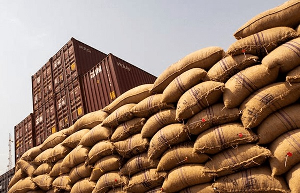A total 71,501 farmers in the Upper East Region have registered to participate in the government’s signature “Planting for Food and Jobs (PFJ)” programme, this year.
They are made 42,748 males and 28,753 females.
This is more than twice the number of farmers (31,000) who enrolled for the programme from across the region in year 2017.
The Regional Director of the Food and Agriculture Ministry (MOFA), Francis Ennor, told the Ghana News Agency (GNA) that he was excited by the high patronage.
He said senior high schools and tertiary institutions in the area were also showing increasing interest and said between these education institutions they would cultivate about 705.5 hectares of maize, 36 hectares of rice, 40 hectares of soya, 14 hectares of sorghum and 31 hectares of groundnuts.
The implementation of the PFJ started last year and is part of the effort to modernize and grow the nation’s agriculture, to ensure food security, create employment and fight poverty.
It involves the supply of quality seeds and fertilizers at subsidized prices.
Mr. Ennor said the enthusiasm of the farmers and the institutions was indicative of the positive impact on the livelihoods of previous participants.
There had been some modifications of the process of acquiring the inputs to make sure that the inputs got to the right people and at the right time.
Registration of farmers was done using smartphones and every beneficiary must have a contact (mobile phone numbers) to enable them to be enrolled onto the PFJ platform.
“Beneficiaries were also going to be given unique codes for transaction through the platform - allocation and payment for seeds, allocation of fertilizer coupons and sale of fertilizers.”
The government had subsidized 50 percent of the cost of the inputs and this time around, the farmer would have to make down payment of remaining 50 percent before “the inputs are delivered to them”.
Mr. Ennor added that the inputs would be delivered to designated points in the various municipalities and districts and that the fertilizers would be sent directly to the inputs dealers.
He was emphatic that the fertilizers would only be supplied to farmers who had purchased improved seeds from MoFA.
Mr. Ennor said despite poor rains and the fall armyworm attack, last year, crop yield, was good.
About 92 hectares farms were attacked in the Garu Tempane District.
He said they had put contingency measures in place to tackle any re-emergence of the pest.
“This type of fall armyworm can fly about 100 kilometres a day and it lays a lot of eggs.”
Business News of Sunday, 13 May 2018
Source: ghananewsagency.org













